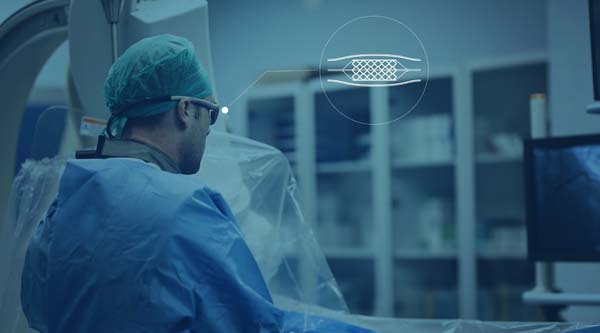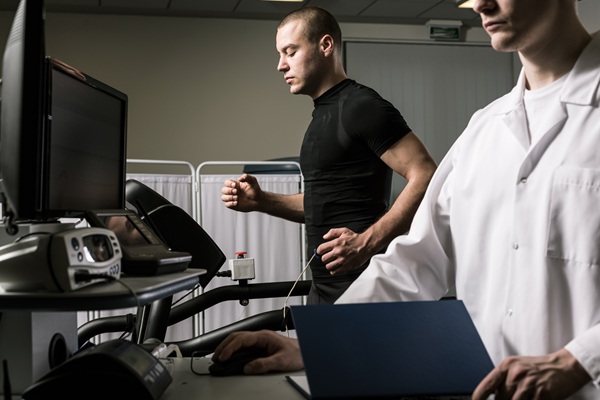4 FAQs About Coronary Angioplasty Treatment

Concerned about an upcoming coronary angioplasty treatment? Read on to learn more about this procedure. Coronary angioplasty treatment is used to improve blood flow to the heart and its structures. Your heart is one of the hardest working muscles in your body with over 100,000 beats per day.
Your heartbeats power your cardiovascular system as it delivers nutrients, oxygen, and other important substances to parts of your body. When arteries around your heart become blocked or narrow, restricting blood flow to the heart can lead to chest pain or a heart attack. Coronary angioplasty treatment is one of the ways a cardiologist improves blood flow to the heart.
4 Frequently asked questions about coronary angioplasty treatment
The following are some commonly asked questions about coronary angioplasty treatment:
1. What type of heart disease can be treated with angioplasty?
Angioplasty is performed to open blocked or narrow coronary arteries. Blocked arteries reduce blood flow to and from the heart. This raises your risk of heart attacks and causes angina, a debilitating type of chest pain.
Arteries can become narrow from the build-up of plaque. This is a sticky substance made of calcium, cholesterol, fat, and other elements that accumulate inside the arteries.
2. What goes on before and during the coronary angioplasty treatment procedure?
Prior to the procedure, the doctor will go over the patient’s medical history and any medications they’re currently taking. Patients on medication like blood thinners, or diabetes medication might be asked to stop taking them leading up to their procedure. Patients will also be educated about post-operative care during the evaluation stage.
Angioplasty treatments are typically done in less than an hour. Patients are injected with a local anesthetic before an incision is made, but they remain awake throughout. They might feel slight discomfort as the catheter is inserted and when the blockage is cleared.
The catheter is usually inserted into a blood vessel in the patient’s arm, groin, or wrist. Once inserted, the cardiologist might open up the patient’s artery by deploying a balloon on the catheter’s tip or scraping plaque away with a rotating tool. Stents are typically inserted into the patient’s artery during angioplasty to prevent it from closing back up.
3. What is recovery like after coronary angioplasty treatment?
Patients will need to lay still with their arms and legs extended for several hours after the procedure. Some patients might have to stay in the hospital overnight for further observation. Patients will likely be prescribed drugs that help to prevent blood clots after the procedure. They are generally advised to refrain from strenuous physical activities for at least a week.
There might be some bruising, bleeding, and discomfort around the area where the catheter was inserted. This typically goes away on its own within a few days. Patients who experience numbness, chest pain, or shortness of breath after getting an angioplasty should seek immediate medical attention.
4. What is laser angioplasty?
Laser coronary angioplasty uses a laser to remove plaque deposits restricting blood flow. It is the most common alternative to using a balloon catheter. The laser vaporizes plaque in blood vessels, improving blood flow to and from the heart.
The bottom line
Have more questions about coronary angioplasty treatment? Contact our office today to set up a consultation with a cardiologist.
Get more information here: https://boyntonbeach.floridapremiercardio.com or call Florida Premier Cardiology at (561) 229-1411
Check out what others are saying about our services on Yelp: Read our Yelp reviews.
Recent Posts
According to the Centers for Disease Control and Prevention, heart disease is the leading cause of death for adults in the United States. Therefore seeking chest pain treatment is crucial, especially for those at high risk for heart disease. However, chest pain can result from various health issues, so how does one know when it…
A cardiac stress test is a diagnostic tool to evaluate how well the heart performs under physical stress. Cardiologists use this test to detect underlying cardiovascular conditions, monitor treatment progress, or assess the risk of future heart complications. Cardiac stress tests are essential in the early detection and management of heart disease.A cardiac stress test…
Peripheral arterial disease affects blood flow in the arteries, most commonly in the legs. It develops due to plaque buildup in the arteries that causes them to narrow and restrict circulation, possibly leading to discomfort, difficulty walking, and other serious complications. Recognizing the symptoms early and exploring treatment options can help improve the quality of…
Receiving cardiovascular treatment is a critical step in managing heart health, but recovery and long-term are equally vital to ensure long-term wellness. Whether the treatment involves medication management, interventional procedures, or surgery, maintaining a relationship with the cardiologist and following their recovery guidelines is crucial. A structured follow-up plan allows patients to maintain the benefits…


